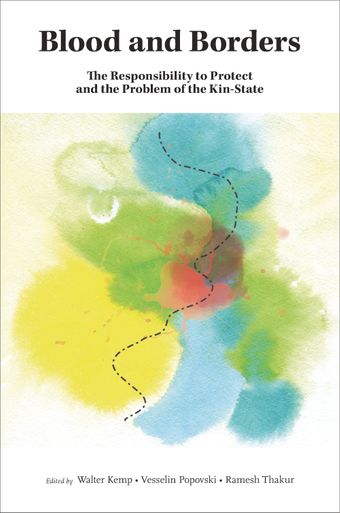- Home
- Books
- Blood and Borders
- Chapter
Bilateral instruments and mechanisms to protect “kin-minorities” abroad: The case of Hungary’s bilateral agreements with its neighbours and their monitoring through joint intergovernmental commissions

- Author: Emma Lantschner
- Main Title: Blood and Borders , pp 93-121
- Publication Date: October 2013
- DOI: https://doi.org/10.18356/63a4b3fa-en
- Language: English
This chapter places bilateral agreements for the protection of minorities and their monitoring mechanisms within an international context and within the context of the concept of the responsibility to protect (R2P). An important element of this concept is the responsibility to prevent violations of human and minority rights. In the area of minority protection, this is ideally achieved through the implementation of appropriate protection mechanisms by the state in which the minority resides. It is, however, widely acknowledged that minority rights are also a matter of legitimate concern to the international community. When one state is home to a minority population constituting the majority in a neighbouring (or nearby) state, situations can arise in which the “home-state” is neglecting its minority, thereby causing internal unrest, and/or in which the “kin-state” is unilaterally pursuing the protection of “its” minority abroad, thereby causing bilateral tensions. Both situations can ultimately result in conflicts that would require action by the international community. This chapter suggests that bilateral agreements, and in particular the joint intergovernmental commissions established for their monitoring, are an expression of the friendly relations among states and a possible means to prevent violations of minority rights or disputes over minority issues from developing into violent conflicts.
© United Nations
ISBN (PDF):
9789210563376
Book DOI:
https://doi.org/10.18356/4270a18a-en
Related Subject(s):
Migration
Sustainable Development Goals:
Countries:
Hungary
-
From This Site
/content/books/9789210563376s003-c001dcterms_title,dcterms_subject,pub_keyword-contentType:Journal -contentType:Contributor -contentType:Concept -contentType:Institution105
/content/books/9789210563376s003-c001
dcterms_title,dcterms_subject,pub_keyword
-contentType:Journal -contentType:Contributor -contentType:Concept -contentType:Institution
10
5

